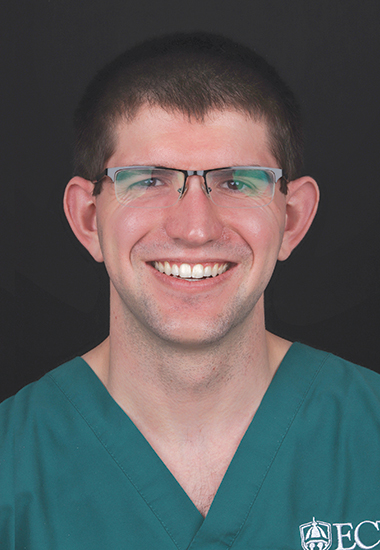My View: Special care dentistry should be the next dental specialty

Special care dentistry has a rich history of treating some of the most underserved and vulnerable members of our community, but this area needs more trained providers and proper funding. Special care dentists provide comprehensive, compassionate care to individuals with conditions, disorders or diseases that complicate dental treatment including those with intellectual and developmental disabilities and/or complex medical histories. They provide care to patients wherever they are in life or in community. Treatment can occur in hospital settings, homes, institutionalized settings or traditional dental practices. Unfortunately, there are not enough special care dental providers or financial resources available to care for the growing older adult population and special needs populations.
Specifically trained special care dentists, with specialty status recognized by the National Commission on Recognition of Dental Specialties and Certifying Boards, would help solve this problem. Specialty training programs would enrich doctoral training and ensure a new generation of special care trained providers. This is necessary both for the dental profession and to support the community at large.
At some point in every provider’s career, they will have a patient with a condition or disorder that complicates delivering dental care. Some patients who were once routine will age and develop a condition that limits their ability to receive care. Most private practitioners are not equipped to see patients in wheelchairs or who are medically complicated. Some patients may not even have the opportunity to go to a traditional dental office because they are confined to nursing homes, group homes, or other institutionalized settings.
Additionally, many providers lack the training to care for those with profound intellectual and developmental disabilities, Parkinson’s, stroke survivors, etc. who may not be able to communicate in traditional ways. My family witnessed this firsthand. My grandfather struggled to receive necessary dental care as he battled with Alzheimer’s disease.
To help this community receive dental treatment that would dramatically improve their overall health and wellbeing, they need not only trained practitioners, but funding that supports this care.
We must innovate means to reduce the gap between dental treatment need and treatment received impacting our community, especially those with special health care needs. This would not only improve health and wellbeing but also reduce associated medical healthcare costs and emergency room visits. A national dental insurance program is a possible solution to reduce this gap. Medicare integrating dental coverage into insurance plans will not help special care communities without additional change. Additional financial reimbursements must answer to the additional costs to provide care and expertise to special care populations. Without additional funding, the dental utilization gap for the most vulnerable and underserved, such as those in institutionalized settings, will persist. The current fee-for-service model does not reflect the extra value of care provided to special care populations or the environments in which care is delivered.
At some point, we will all care for someone or be that someone that requires the skills of a special care dentist. We do not want anyone requiring necessary medical treatment to forgo care. The same should be said for dental care, too. Without it, those around us will continue to experience pain, issues with nutrition, and a general negative impact on their overall health and well-being. We need the resources provided by special care education, specialty status, and funding to provide that basic dental area – the same care you can receive in a private practice.
Joshua Walker is a third-year dental student at the East Carolina University School of Dental Medicine and a 2022-23 NC J. Bradley Wilson Schweitzer Fellow. He formerly worked for Access Dental Care, a leader in special care dentistry.



